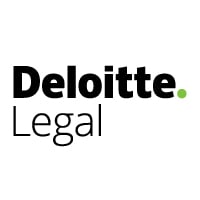

Vice president corporate law and secretary of the board of directors | Recordati



Silvia Signoretti
Vice president corporate law and secretary of the board of directors | Recordati
How do you approach managing legal aspects during periods of instability or crises, and how does your legal strategy align with the broader business strategy to ensure the organisation’s resilience?
Managing legal aspects during periods of instability or crisis requires a balance of strategic foresight, operational agility, and close alignment with the broader business strategy.
My approach begins with a proactive legal risk assessment and governance oversight, ensuring that board-level reporting and compliance obligations are addressed promptly and accurately. In times of uncertainty, clarity and speed are essential. Legal teams must be able to interpret evolving scenarios and translate them into actionable governance responses.
One of the most valuable contributions legal counsel can make during such periods is to act as a strategic partner to the business. I work closely with cross-functional teams to help shape internal processes and decision-making frameworks that are both resilient and adaptable. This includes reviewing delegation models, refining approval workflows, and ensuring that legal and regulatory requirements are embedded into operational decisions without slowing down execution.
Agility is key. Crises often expose gaps or inefficiencies in governance structures, and being able to adapt those models quickly—without compromising integrity—is critical. Whether it’s adjusting board reporting formats, updating risk registers, or streamlining compliance protocols, the legal function must be ready to pivot and support the organisation’s evolving needs.
At Recordati, our legal strategy is designed to align with the company’s broader goals of resilience, transparency, and disciplined growth. This means not only protecting the organisation from risk, but also enabling it to move forward with confidence—even in challenging environments.
What are the major cases or transactions you have been involved in recently?
Recordati’s growth continues to be fuelled by strategic geographic expansion and targeted M&A, with increasing emphasis on life cycle management and innovation.
As Vice President of Corporate Law and Secretary of the Board of Directors, I am actively involved across all dimensions—ensuring governance alignment, compliance with regulatory and disclosure requirements, legal integrity, and disciplined execution throughout every phase.
In 2025, I provided governance-focused legal support for several strategic initiatives. Notable examples include:
• The licensing and commercialisation agreement with Amarin for Vazkepa® across Europe, strengthening our cardiovascular portfolio and expanding our Specialty & Primary Care business.
• The FDA’s expanded indication approval for Isturisa® for the treatment of endogenous hypercortisolaemia in patients with Cushing’s syndrome.
• The approval of the 2025–2027 Three-Year Plan.
• The appointment of the new Board of Directors of Recordati S.p.A., preceded by a thorough board review process and followed by a comprehensive induction programme for newly appointed independent directors.
What emerging technologies do you see as having the most significant impact on the legal profession in the near future, and how do you stay updated on these developments?
Artificial Intelligence is undeniably a game changer in the legal field and at Recordati, we are actively investing in harnessing its potential in a responsible and strategic way. AI tools are already reshaping legal operations: streamlining due diligence, automating contract drafting, enhancing governance workflows, and supporting board management.
However, embracing AI requires more than enthusiasm: it demands a clear understanding of what “the right way” means in a business environment. At Recordati, this means prioritising confidentiality, source reliability, and regulatory alignment. These principles are essential to ensure that AI tools are not only effective but also trustworthy and compliant with legal and ethical standards. This approach was recently emphasised in our strategic discussions at the Leadership meeting.
AI is here to stay and we are only at the beginning of its journey. Legal professionals should not fear it, but rather embrace it as a powerful tool to reduce repetitive tasks and free up time for strategic, high-value thinking. While AI can assist in drafting minutes, contracts, and memos, it cannot replace the critical thinking, judgement, and collaborative partnership that legal counsel brings to business decisions. As discussed in our Global Legal Meeting, the human role in navigating governance complexity and aligning internal and external obligations remains irreplaceable.
That’s why we continue to share and discuss AI across all levels of the organisation: we strongly believe in innovation and its potential to enhance our work.
In your opinion, what are the main trends that are salient in your country currently (these can be legal, political, economic or business-based)?
In 2025, four key trends are shaping Italy’s legal and business landscape:
• ESG remains central, though recent “cold winds” from across the Atlantic—marked by scepticism and regulatory pushback—are prompting European companies to reinforce transparency and board-level accountability. Italian companies are focusing on measurable impact, board-level oversight, and transparent stakeholder engagement.
• Digital innovation is accelerating, especially in legal operations.
• U.S. geopolitical shifts are influencing trade and compliance, prompting companies to adopt more flexible governance models. These developments require organisations to remain agile in how they structure oversight, manage risk, and respond to external pressures. For governance teams, this means anticipating changes, adapting internal frameworks, and ensuring alignment with both domestic and international standards.
• Cybersecurity is gaining urgency, driven by evolving EU directives and the need for integrated governance across digital ecosystems. Legal teams are expected to play a more strategic role, not only in ensuring compliance, but also in operationalising these frameworks and managing risk across the organisation.
Group legal counsel | Recordati
Group legal counsel | Recordati
Silvia Signoretti is an Italian qualified lawyer with more than 20 years of experience (both in law firms and in-house). After graduating in law at the Padua University, she obtained...